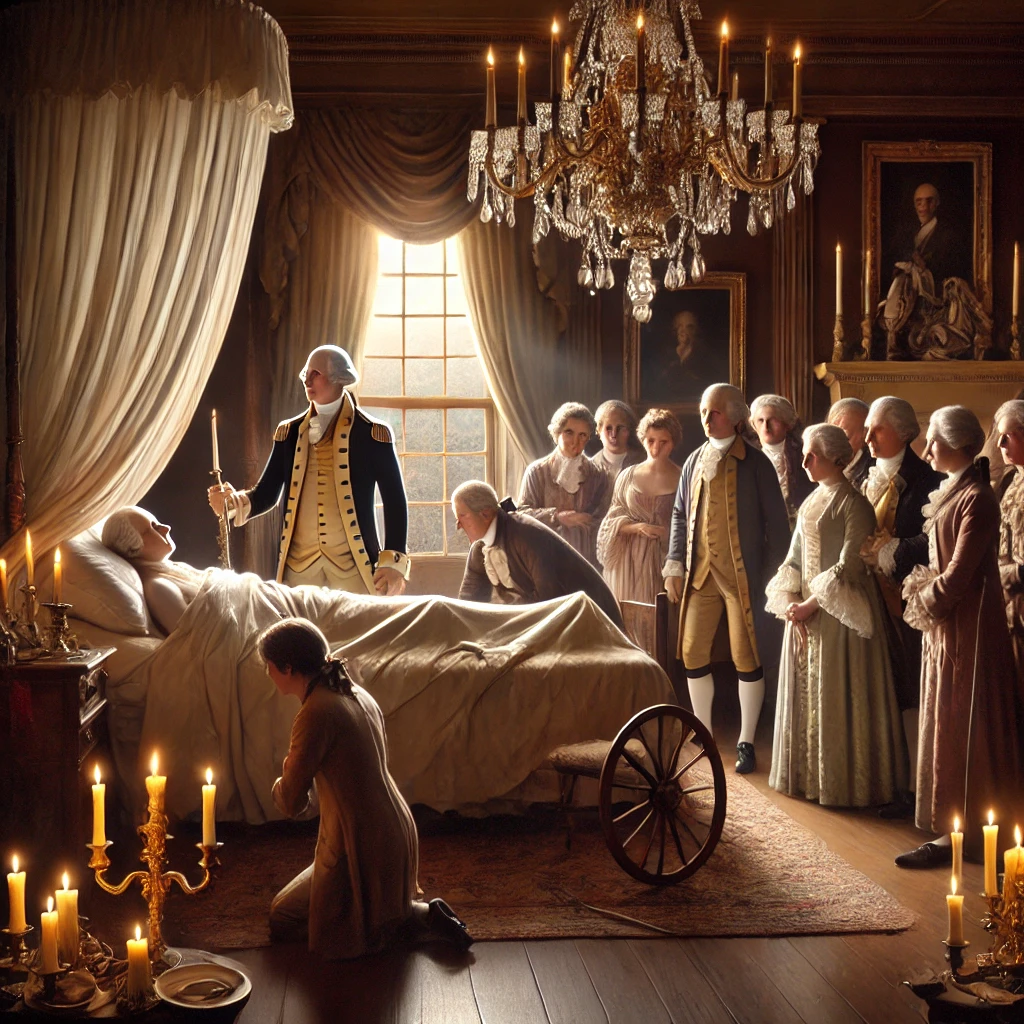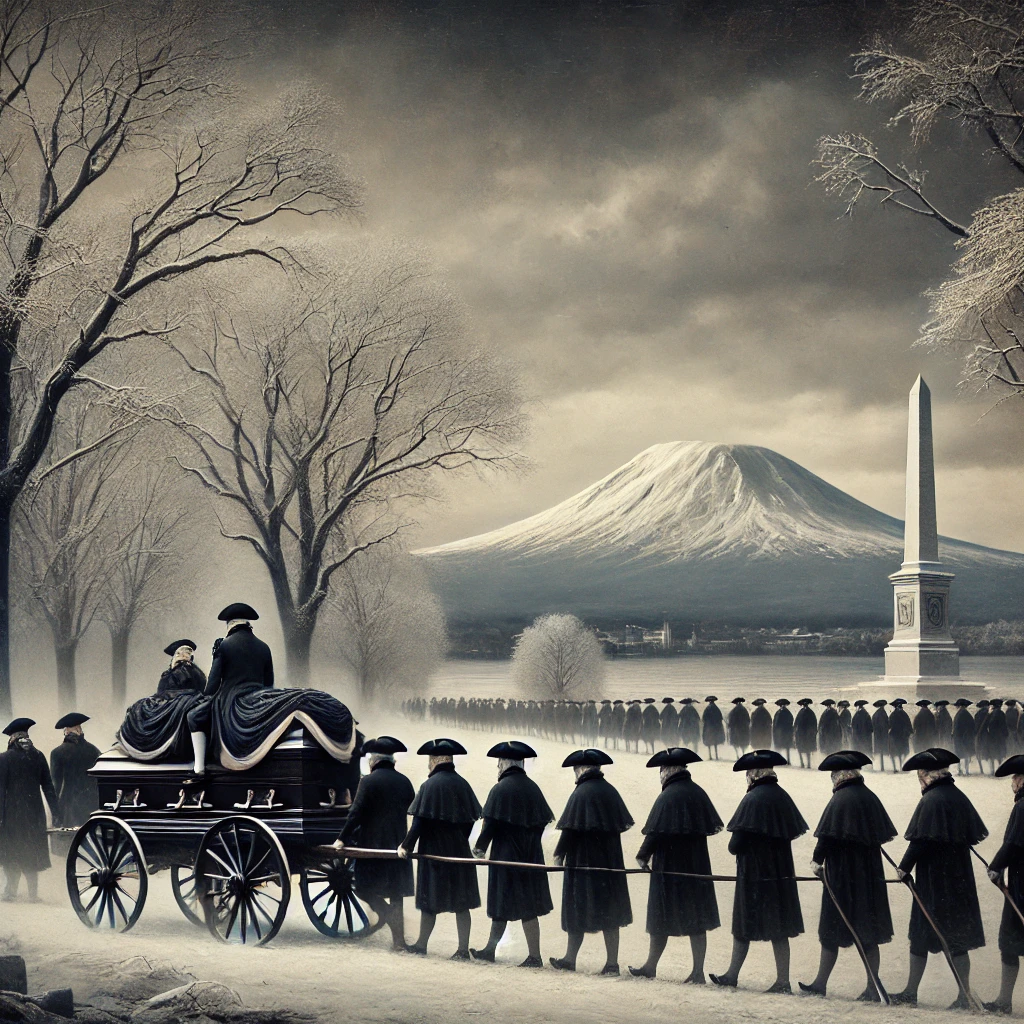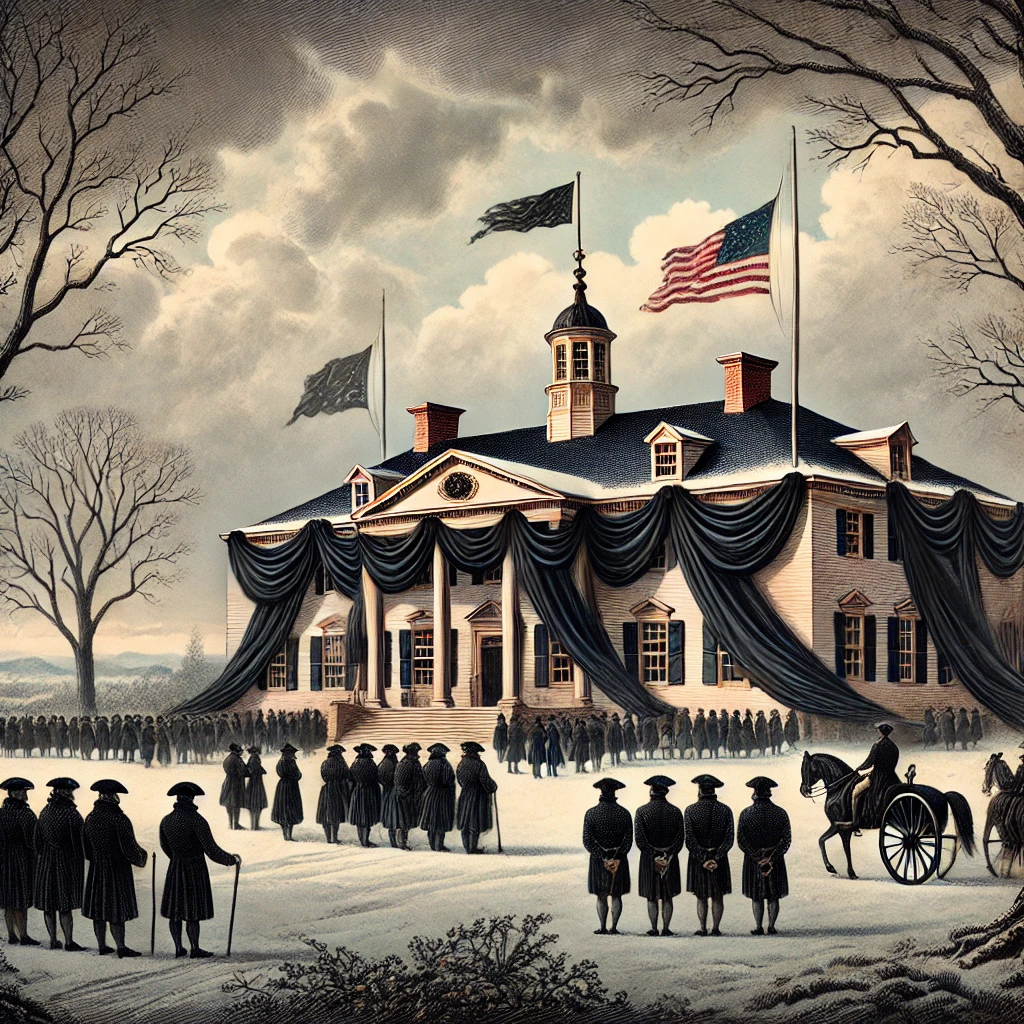On this solemn day in 1799, George Washington, the first President of the United States and a key figure in the American Revolutionary War, passed away at his Mount Vernon estate. His death marked the end of an extraordinary life dedicated to the birth and establishment of the United States. Nearly two and a half centuries later, his legacy continues to shape the fabric of American identity.

George Washington’s Final Days
In the winter of 1799, George Washington faced a sudden and fatal illness. After spending the day inspecting his plantation in freezing rain, he developed a severe throat infection, later believed to be epiglottitis. Despite the best efforts of his physicians, which included the common practice of bloodletting, Washington succumbed to his illness on December 14 at the age of 67. His last words, “’Tis well,” reflected his stoic acceptance of death and his unyielding faith in the nation he had helped to create.
Washington’s passing sent shockwaves across the fledgling United States. Mourning ceremonies were held in cities and towns throughout the country, as Americans grappled with the loss of the man often referred to as the “Father of His Country.”

The Significance of George Washington’s Leadership
George Washington’s life was marked by an unwavering commitment to the ideals of liberty and republican governance. As commander-in-chief of the Continental Army, he led American forces to victory over the British in the Revolutionary War, securing independence for the 13 colonies. His role in presiding over the Constitutional Convention of 1787 ensured the establishment of a federal government based on principles of democracy and the rule of law.
Elected as the first President of the United States in 1789, Washington set crucial precedents for the office, including the peaceful transfer of power and the two-term limit, which would later be codified in the 22nd Amendment. His Farewell Address, warning against political factions and entangling alliances, remains one of the most studied documents in American political history.
Washington’s Enduring Legacy

Today, George Washington’s influence is evident in countless ways. His name and image adorn currency, monuments, and the nation’s capital, serving as constant reminders of his contributions. Washington’s leadership style, characterized by humility, perseverance, and dedication to the common good, continues to inspire leaders in government, military, and business.
Moreover, his Mount Vernon estate serves as a living museum, offering visitors a glimpse into 18th-century life and the values that shaped his vision for America. His commitment to unity and democratic ideals resonates in a modern era marked by division and complexity, underscoring the timeless relevance of his example.
